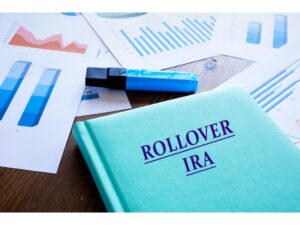Self-Directed Individual Retirement Accounts (IRAs) have grown in popularity in the field of retirement investing & planning in recent years. Self-directed IRAs, as opposed to regular IRAs, give investors more freedom and flexibility in asset selections. Using a Self-Directed IRA to invest in real estate is one appealing alternative. Individuals can use this method to diversify their retirement portfolio while potentially reaping the benefits of real estate appreciation, rental income and the tax-deferred growth of funds. In this article, we’ll discuss the ins and outs of Self-Directed IRA real estate investmenting.
Understanding Real Estate IRAs
In essence, a self-directed IRA is designed explicitly for holding investment properties. Unlike traditional IRAs that limit investments to marketable securities (like stocks and bonds), real estate IRAs offer greater flexibility by permitting a diverse range of real estate holdings, including residential and commercial properties, undeveloped land, and even international real estate.
Real Estate IRA Rules
While IRAs investing in real estate offer the advantage of diversification, they are subject to specific IRS rules and regulations to ensure compliance and preserve the account’s tax-advantaged status. Some key rules to remember are:
- Property Title
Real estate within the self-directed IRA is owned by the IRA itself, not by the individual investor. All title documents must reflect this, indicating ownership under the custodian’s name for the benefit of the individual’s IRA.
- Expenses and Income
All expenses and income related to the property must flow through the IRA. Property taxes, maintenance costs, and rental income must be handled by the account, ensuring that no personal funds are used for these transactions.
- Limitations on Use
Properties held within an IRA cannot be used for personal purposes. They are strictly considered investment properties and cannot be utilized by the account holder or any disqualified persons, such as immediate family members.
- DIY Repairs and Maintenance
Any necessary repairs or maintenance on the property must be paid for by the IRA. It is prohibited for the account holder or any disqualified person to perform such tasks.
- Prior Property Ownership
Investors cannot sell or transfer properties they already own to their real estate IRA, as this is considered “self-dealing” and is not allowed by the IRS.
- UBIT Consideration
If a non-recourse loan secured by the property is taken out, unrelated business income tax (UBIT) may apply to profits related to the financed portion. However, various deductions and allowances can help minimize the UBIT burden. Talk to your CPA for more information on UBIT.
How To Utilize a Self-Directed IRA to Invest in Real Estate
If you’re interested in using a self-directed IRA to invest in real estate, follow these easy steps to get started:
- Select a Custodian
Ask us for a new account application for the type of IRA you want to establish, such as traditional, Roth, or SEP.
- Fund Your Account
Once the account is set up, you can fund it with either cash, (adhering to the annual contribution limits), or through an IRA rollover. If you opt for a rollover, ensure it’s between similar types of IRAs. For instance, if you’re rolling over funds from a traditional IRA to a self-directed Roth IRA, be prepared for a Roth conversion and the associated tax payment. A transfer form is included in our new account packet.
- Review IRS Guidelines
Familiarize yourself with the IRS guidelines about real estate IRAs to ensure that the property you intend to buy, and its intended use, comply with the rules. Before entering any purchase agreement or seeking a mortgage, perform thorough due diligence on the property, just as you would with any real estate investment.
- Purchase Real Estate
Decide on the method of payment, whether it’s a cash purchase, financing through a mortgage, buying with other investors and proceed with the escrow process through your custodian, Nevada Trust Company®. Bear in mind that all funds for the property purchase must come from your IRA.
Once the escrow process is successfully concluded, you can rent or lease the property, but it must not be to a disqualified person, such as yourself or immediate family members. All expenses and income need to flow through your IRA so make sure to coordinate deposits or payments with Nevada Trust Company®. Your real estate IRA will be responsible for covering all property-related expenses and receiving all rental income.
Contact us today to get a new account packet for the type of IRA you want to use and we can walk through the purchase and deposit process.






